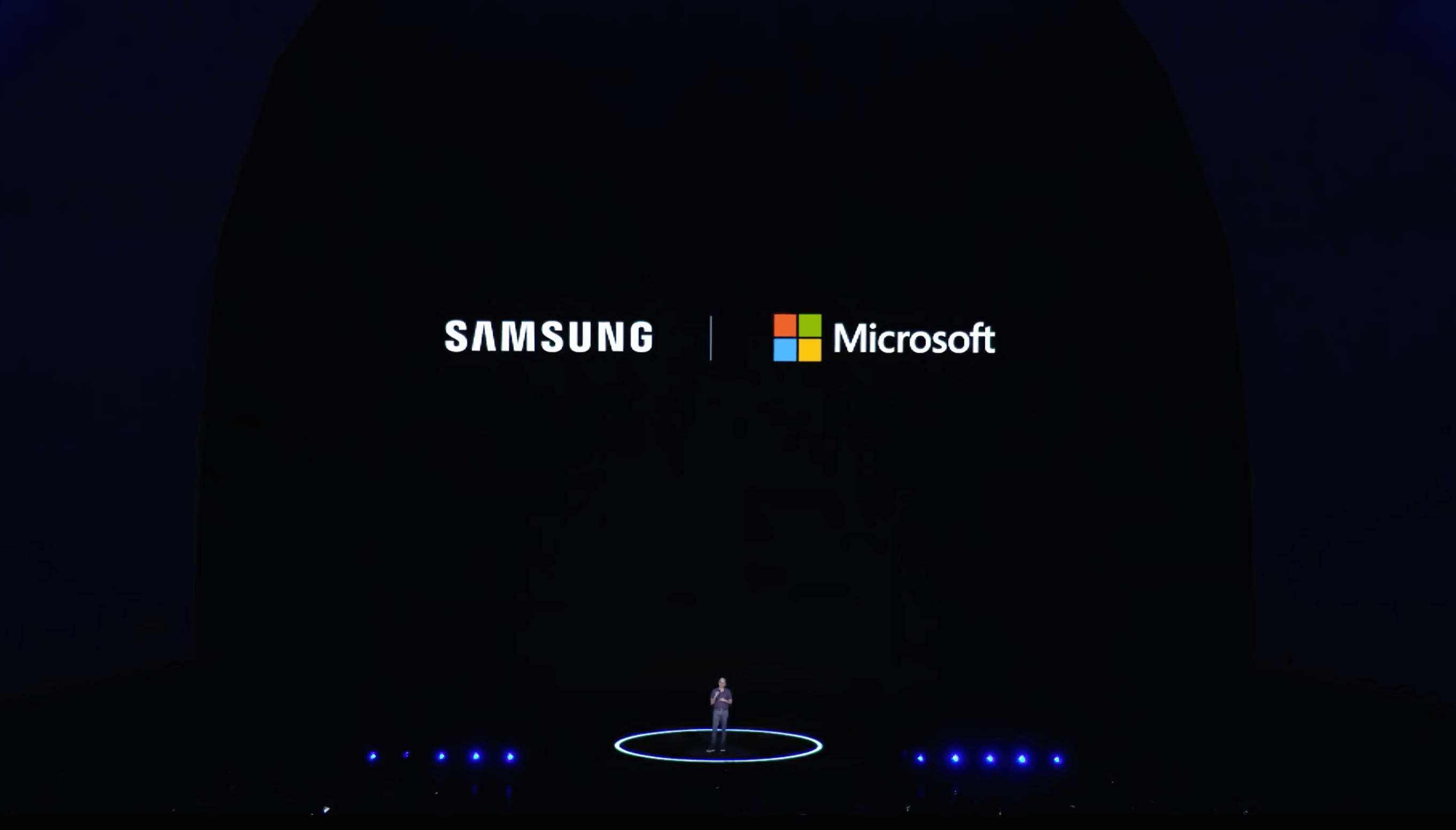Something to look forward to: How things have changed. Not that many years ago Microsoft was trying to compete in the smartphone market and PCs were considered on their way out. Samsung was a strong consumer brand but had virtually no presence (or credibility) in the enterprise market. Fast forward to today – last week's Galaxy Unpacked event to be precise – and the picture is totally different. Microsoft CEO Satya Nadella joined Samsung Mobile CEO DJ Koh onstage to announce a strategic partnership between the companies that highlights what could (and should) prove to be a very important development, not only for the two organizations, but for the tech industry in general.
The partnership signifies a profound shift in the landscape of devices, companies, platforms, and capabilities. By bringing together Samsung branded hardware and Microsoft software and services, the two companies have formed a powerful juggernaut that represents a serious threat to Apple and an oblique challenge to Google, particularly in the enterprise market.
To be clear, the companies have worked together in the past and some have argued that the exact details of the partnership remain to be flushed out. Fair enough. But when you put together the number one smartphone market share presence of Samsung with the deeply entrenched position of Microsoft software and cloud-based services, it's not hard to imagine a lot of very interesting possibilities that could grow out of the new arrangement.
For one, it helps each company overcome long-running concerns that they've been missing out on important markets. Samsung has been chided for not having the software and services expertise and offerings of an Apple, which was theoretically going to make the Korean giant vulnerable as the hardware markets started to slow. On the other side, Microsoft rather notoriously failed to make any kind of dent in the smartphone market. Together, however, the complementary capabilities offered by the partnership give customers a wide range of powerful and attractive devices, along with leading edge services and software in the business world. Plus, the two companies don't really compete, making the collaboration that much more compelling. The consumer story is clearly much tougher, but even there, Microsoft's forthcoming game streaming services could certainly be an intriguing and compelling option for certain consumers. On top of that, the combination of Samsung and Microsoft is likely to attract interest from other third-party consumer services (Spotify or Netflix anyone?) that would be interested in joining the party.
"When you put together the number one smartphone market share presence of Samsung with the deeply entrenched position of Microsoft software and cloud-based services, it's not hard to imagine a lot of very interesting possibilities that could grow out of the new arrangement."
But there are additional benefits to the partnership as well. For one, it clearly helps tie PCs and smartphones together in a much more capable and blended way. To Apple's credit, their Continuity features that link iPhones, iPads and Macs in an organized fashion were the first to make multiple devices operate as a single entity. However, despite Apple's overall strength, the percentage of people who only own Apple devices is actually pretty small---in the single digit percentage range according to my research. The percentage of people who have Windows PCs and Android-based phones, on the other hand, is enormous. Obviously, Samsung only owns a portion of that total, but it's a big enough percentage to make for a very significant competitor.
More importantly, the combination of Microsoft and Samsung also further breaks down the walls between different operating systems and highlights the value the cloud can bring to a multi-device, multi-platform world. Samsung is still committed to Google's Android as its smartphone OS, but by integrating things like Office 365, OneDrive and more into its devices, they are making life easier for people who spend much of their time in the Windows world. Conversely, Microsoft's expanding efforts with their Your Phone app in Windows 10 highlight the effort they're making to turn the process of using multiple devices into a more coherent experience. Unique Samsung-specific extensions promised for that app should make it even more compelling. For Google, the challenge will be continuing to build the presence of apps like G Suite and other enterprise-focused services in spite of its leading Android partner choosing Microsoft for some of its business-based offerings.
The deal extends beyond smartphones as well. Though Samsung has been tiny player in the Windows PC market for several years, they made a bit of a splash at the event by introducing the Samsung Galaxy Book, the first Windows-based always connected PC (ACPC) using Qualcomm's third generation PC-focused processor the 8CX. While there are clearly still challenges in that space, the fact that it's a Samsung, Microsoft, Qualcomm partnership in PCs exemplifies again how far the tech industry has evolved over the last several years.
We're clearly still in the very early days of analyzing what the potential impact of the Samsung and Microsoft partnership will mean. But even a casual glance would suggest that there are very interesting things still to come.
Bob O'Donnell is the founder and chief analyst of TECHnalysis Research, LLC a technology consulting and market research firm. You can follow him on Twitter @bobodtech. This article was originally published on Tech.pinions.
